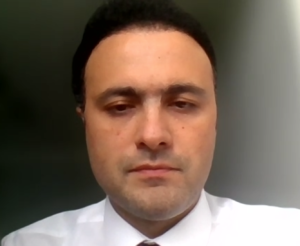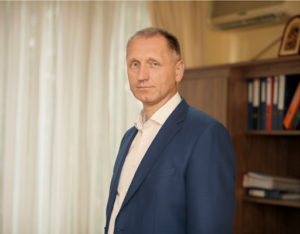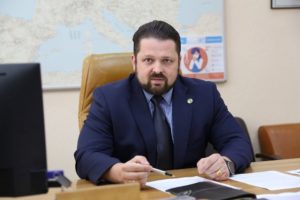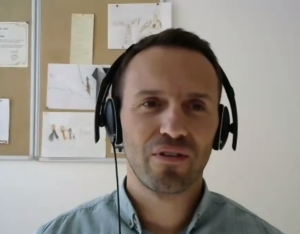On September 23, the USAID Energy Security Project (ESP), the National Energy and Utilities Regulatory Commission (NEURC), transmission system operator Ukrenergo, and the Energy Community Secretariat held a roundtable on electricity trading and supply under the new market model.
Attendees discussed the experiences of traders and suppliers as well as the needs and issues of market participants operating in the newly liberalized retail and wholesale electricity markets, then examined the prospects for these markets. Over 150 suppliers, traders, and NGO representatives in the field joined the discussion.

In his opening address, ESP Senior Electricity Regulatory Manager highlighted the market’s continuing progress. “The fully-fledged electricity market has already been functioning for two years. Yet, it is still a baby. Already it can walk, but it needs much care and support from the regulator, as well as all participants in this market. Further development of the market will mean more challenges: the market will grow; the interactions between its various segments will develop. It will have an impact upon other economic sectors. The development of a truly competitive market will depend on the successful introduction of transparent rules.”
Throughout the meeting, attendees voiced the key problems and challenges that market participants face.

For example, NEURC Commissioner Dmytro Kovalenko noted the absence of reference prices in the market to serve as a reliable benchmark; these would be particularly useful when signing contracts with end users in the retail market. So far, the prices in the day-ahead market (DAM) are the only indicator for this type of contract, but the DAM only represents 15 percent of total electricity consumption. Mr. Kovalenko stressed that the high volatility of DAM prices causes instability in other segments of the electricity market.
Other topics included the cost of electricity supply and fixed prices, as Dr. Kolmek reminded participants that price caps should be only a temporary precaution against price distortion. In the future, when all segments of the electricity market (including the intraday market) function properly and independently, price caps will remain for the balancing market only.

Ukrenergo Director for Market Operations Mykyta Vyshnevskyi brought up electricity market settlements and the debt to the transmission system operator. He noted that as of mid-September 2021, balancing market participants owed Ukrenergo a total of UAH 10.1 billion, while Ukrenergo owed market participants UAH 11.9 billion. Total debt associated with transmission and dispatch services in the electricity market amounted to UAH 5.9 billion, including VAT.
The second panel was dedicated to commercial metering. Ukrenergo’s Director for Commercial Metering, Oleksandr Karpenko, introduced the new Datahub Platform and laid out the measures necessary to improve commercial metering in Ukraine. The platform is expected to serve as a single source of certified data from all sites with commercial metering. Using calculations based on unified algorithms, it will ensure transparent data. However, Datahub alone should not be seen as a universal solution to ensure reliable and timely commercial metering data; this will depend on the onsite commercial metering situation, the quality of telecommunication between metering sites and service providers, and metering providers’ level of automation. Oleh Sidorenko, Director of TRIO GROUP Company, touched on important barriers to the development of a competitive market for commercial metering services: among other challenges, the latest amendments to the Commercial Metering Code complicated important service provider functions and contributed to DSOs’ monopolistic position.
The third panel considered cross-border electricity trade, discussing cross-border section capacities as well as interventions and solutions to ensure their effective use and to promote cross-border trade. Proposed solutions included joint auctions and potential amendments to the regulatory framework.

Arben Kllokoqi, an electricity expert from the Energy Community Secretariat, emphasized that effective market coupling would require Ukraine to harmonize certain legislation with the EU framework. Volodymyr Zinevych, Commercial Director of LE TRADING UKRAINE, noted gaps between Ukrainian legislation and EU rules and standards regarding the import and export of electricity. At the same time, Myhailo Voloshyn, Head of Energy Projects at ERU Trading, noted that European traders do not yet operate in Ukraine’s newly liberalized electricity market, which could be a discouraging sign. However, joint auctions will expand cross-border trade by improving the administration of cross-border section capacity allocation.
Closing the event, Dr. Kolmek summarized: “Our goal is to identify effective mechanisms to deal with the key problems of market participants. It is the right time for us all to work actively and constructively in order to initiate real changes.”
The participants thanked the organizers for the constructive dialogue and the opportunity to discuss many important questions regarding the electricity market. They stressed the importance of such events to sustain an open dialogue between the market participants, the regulator, and the Energy Community. These continuing conversations will facilitate adequate and timely decisions to improve the legal and regulatory framework, support the development of electricity markets, and introduce best international practices in the field.
